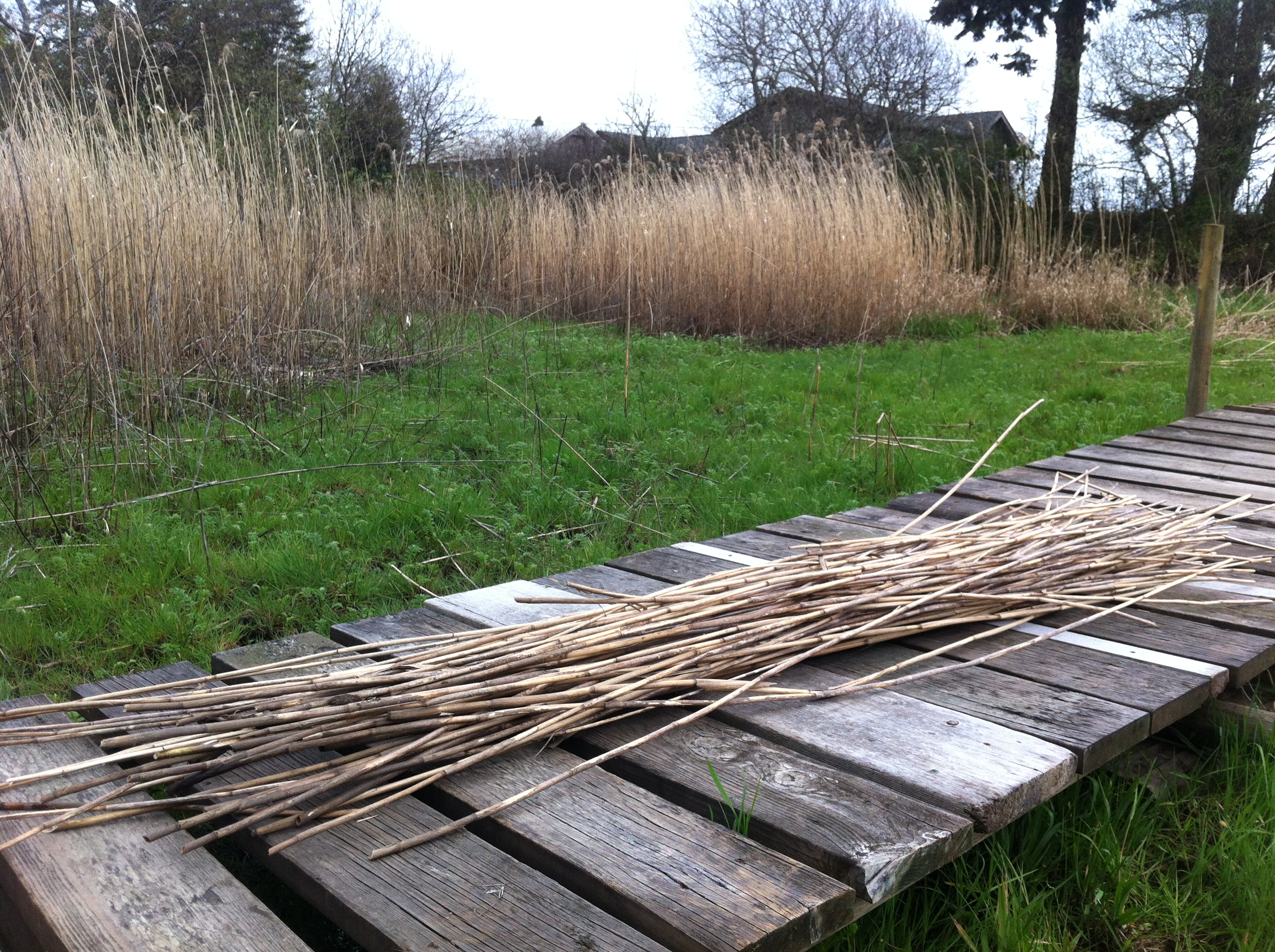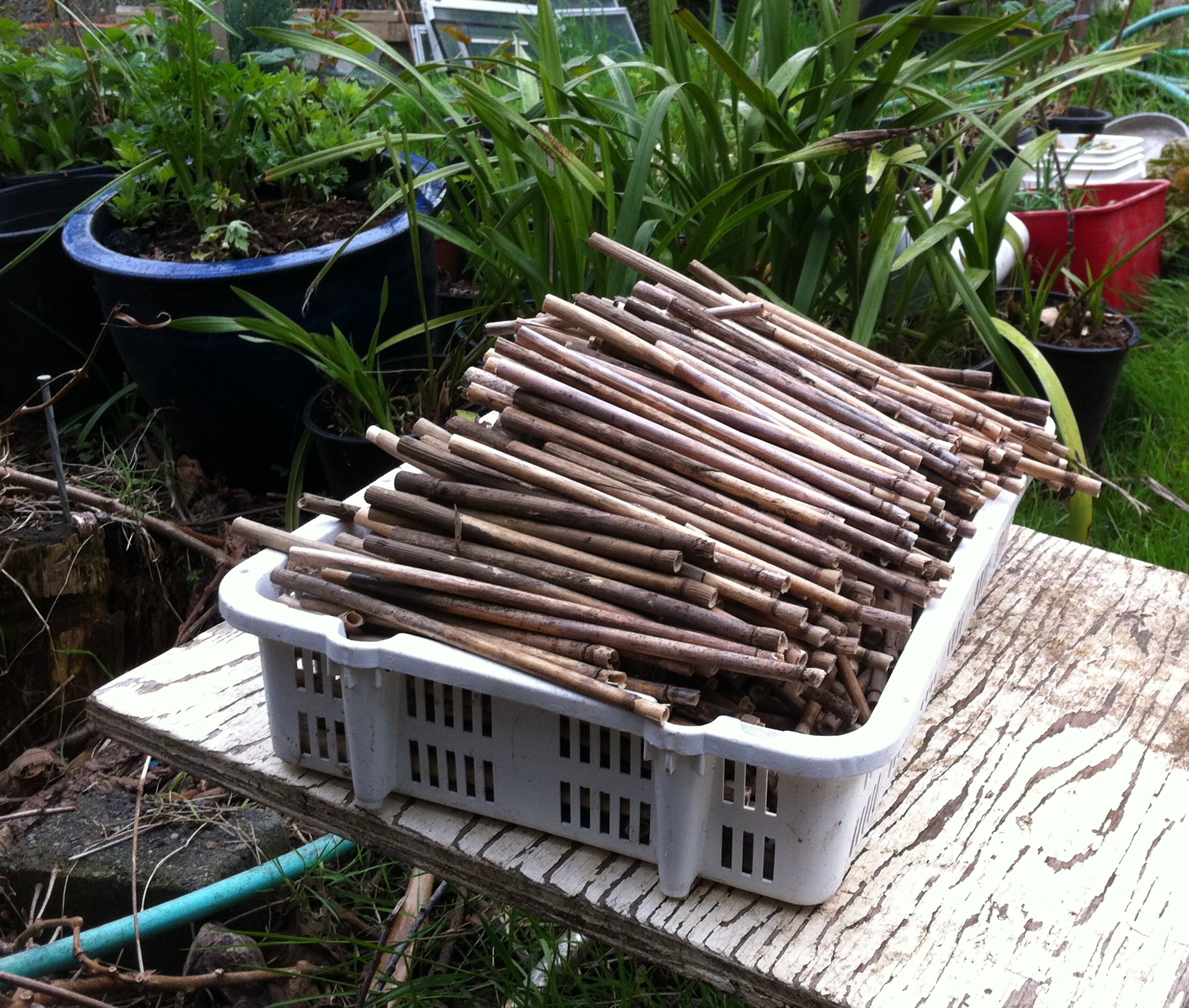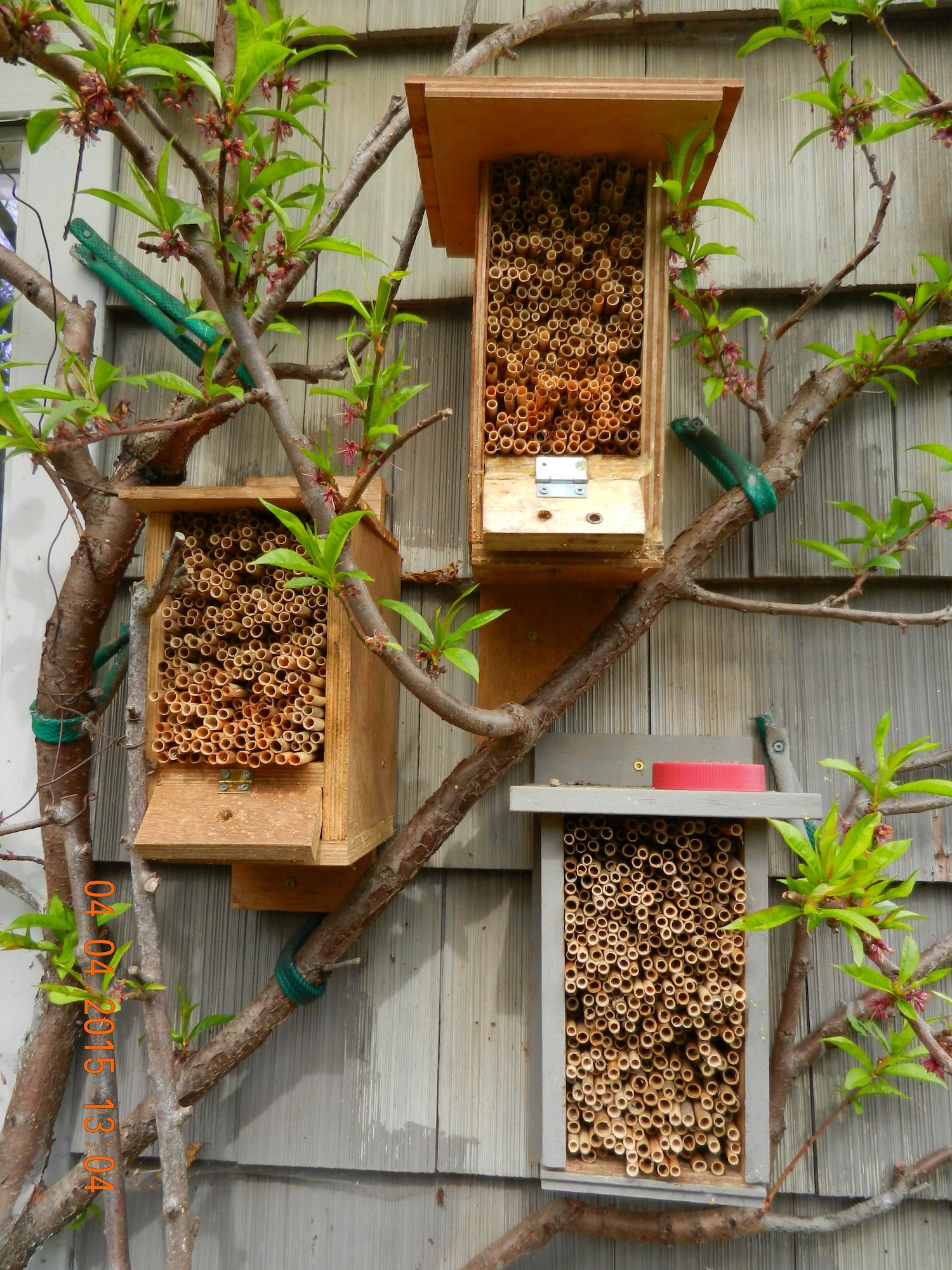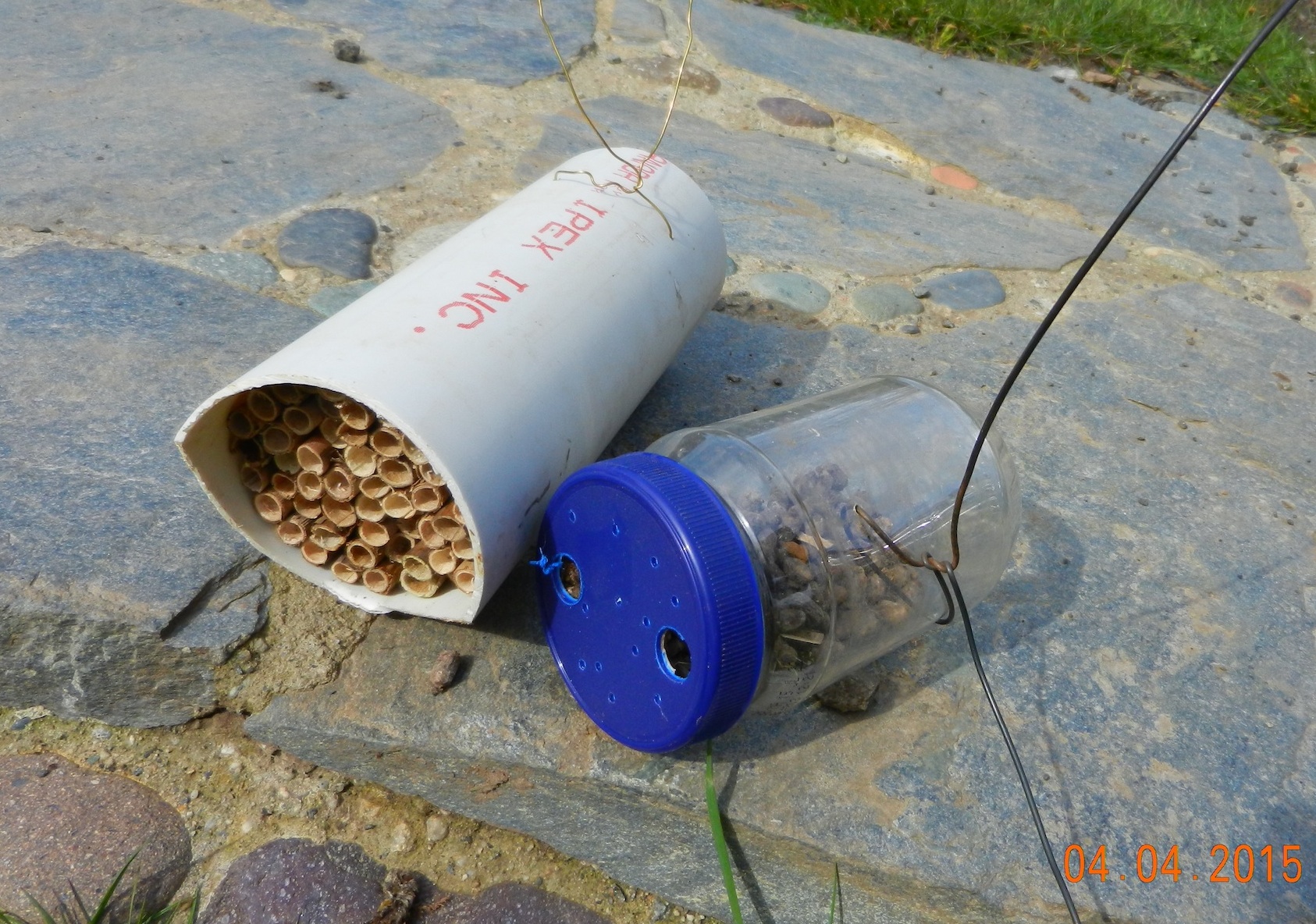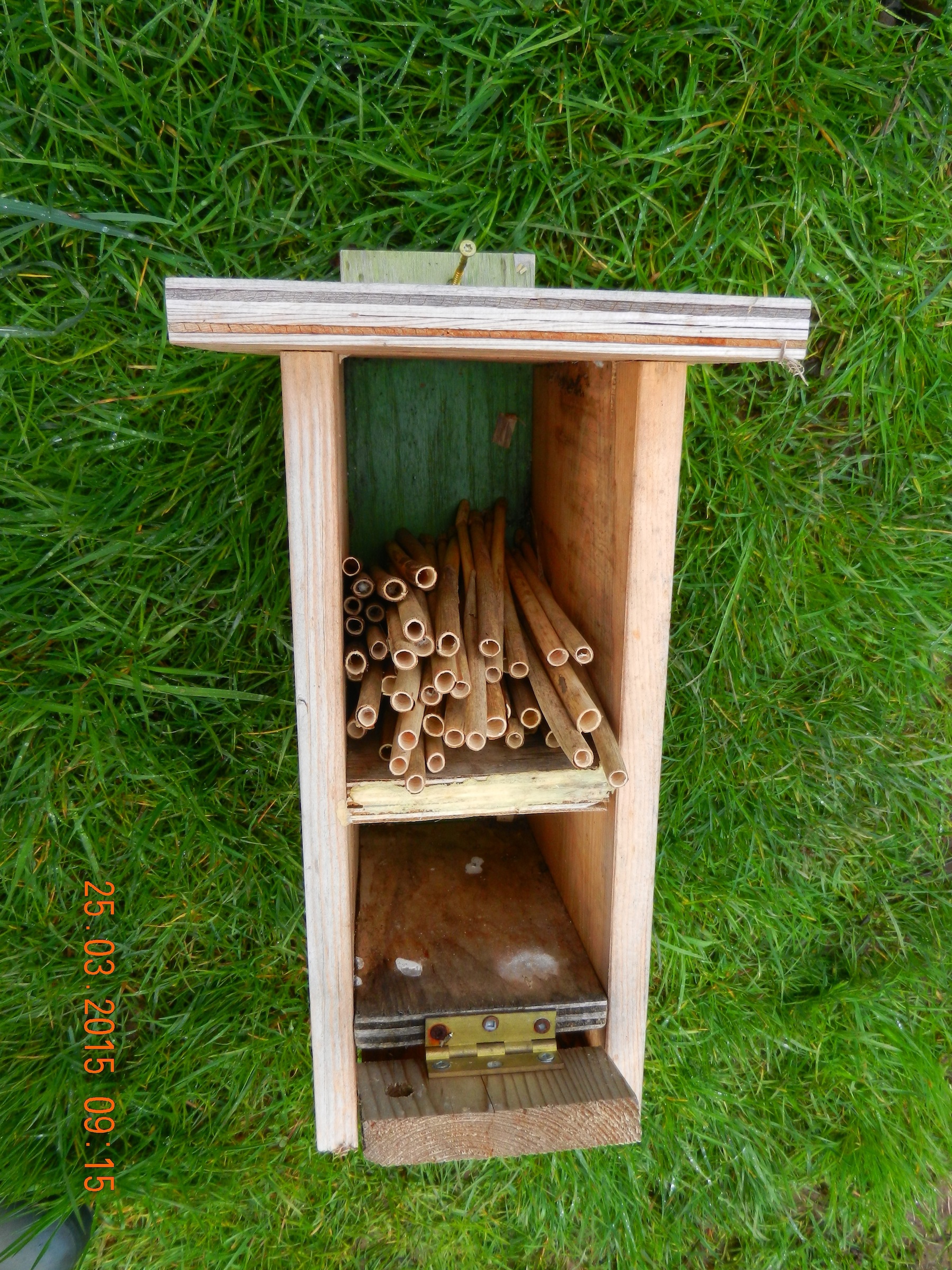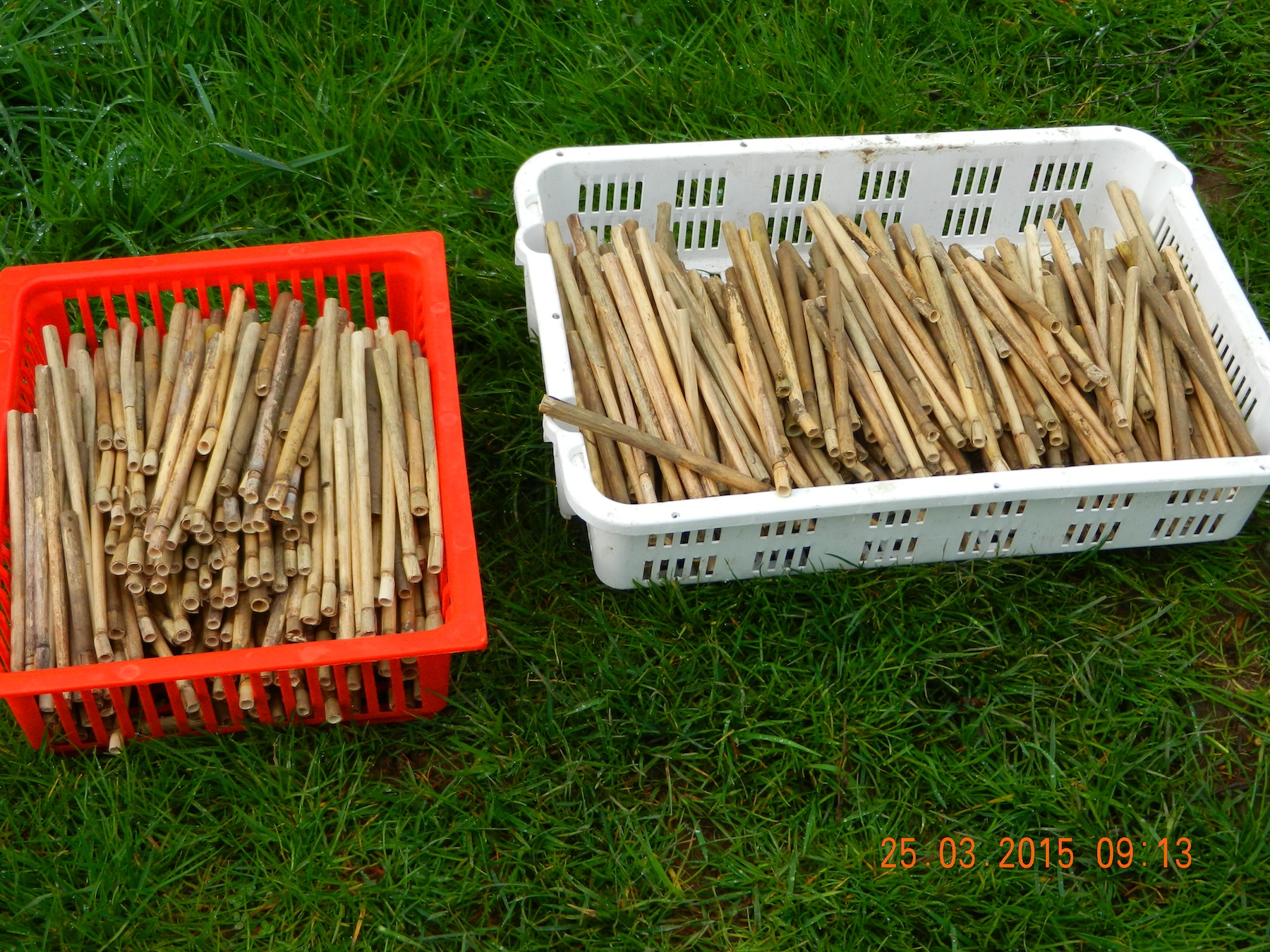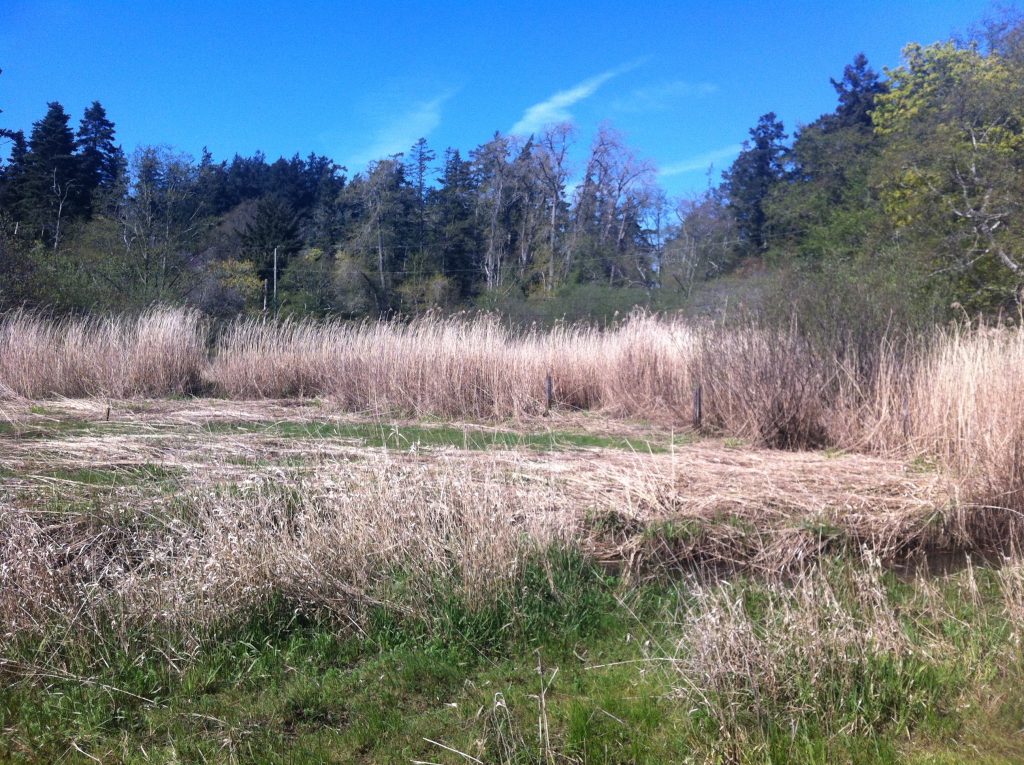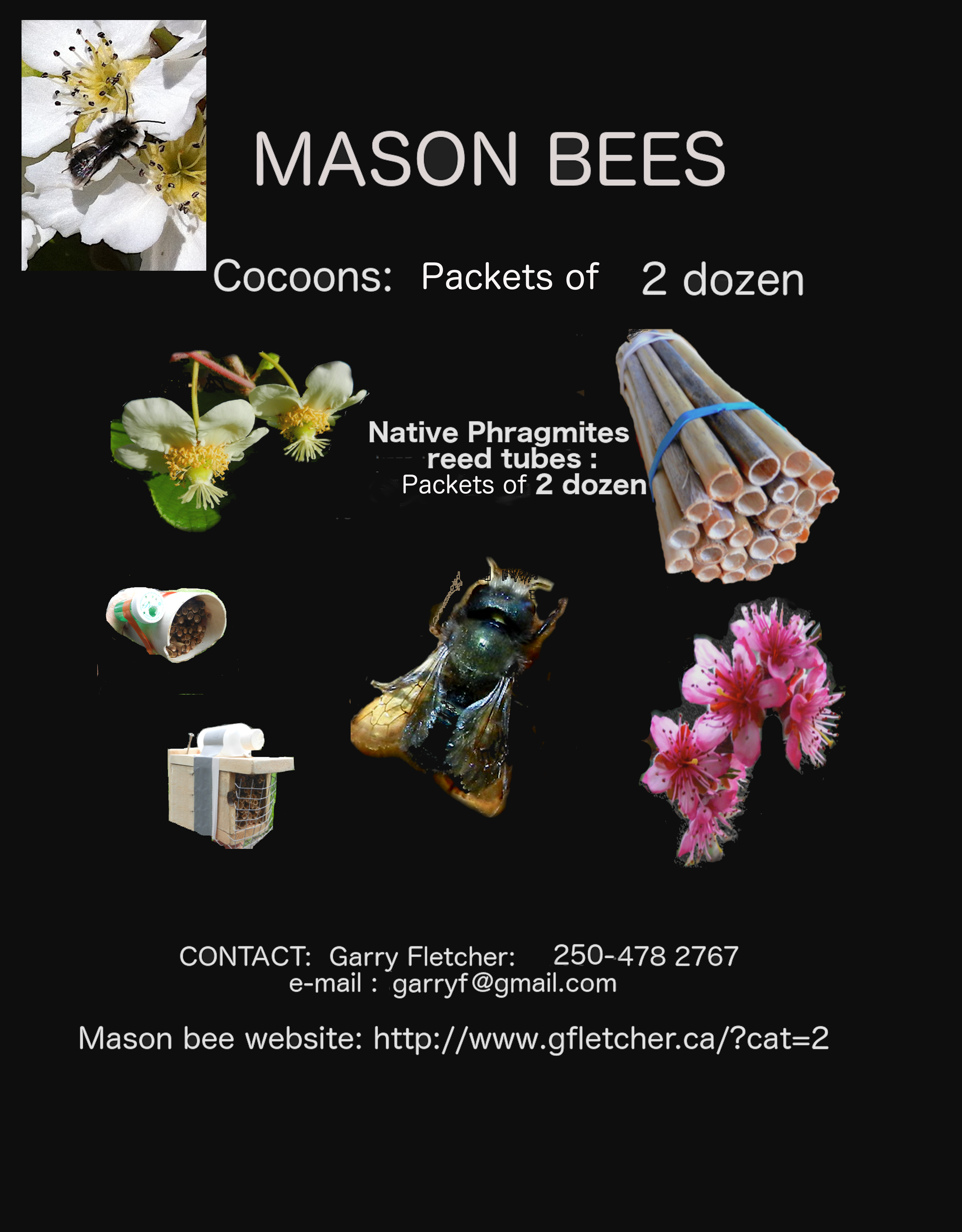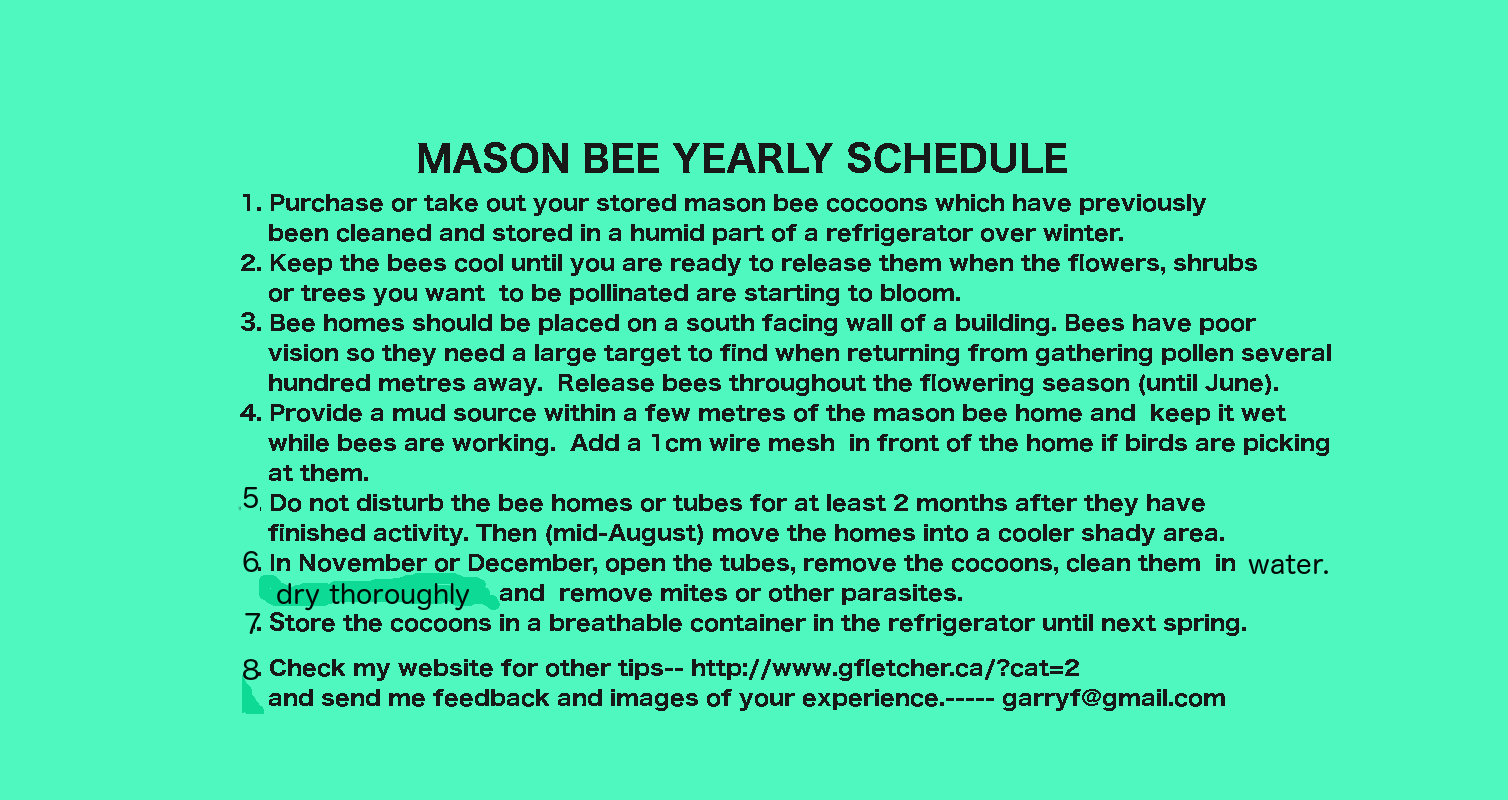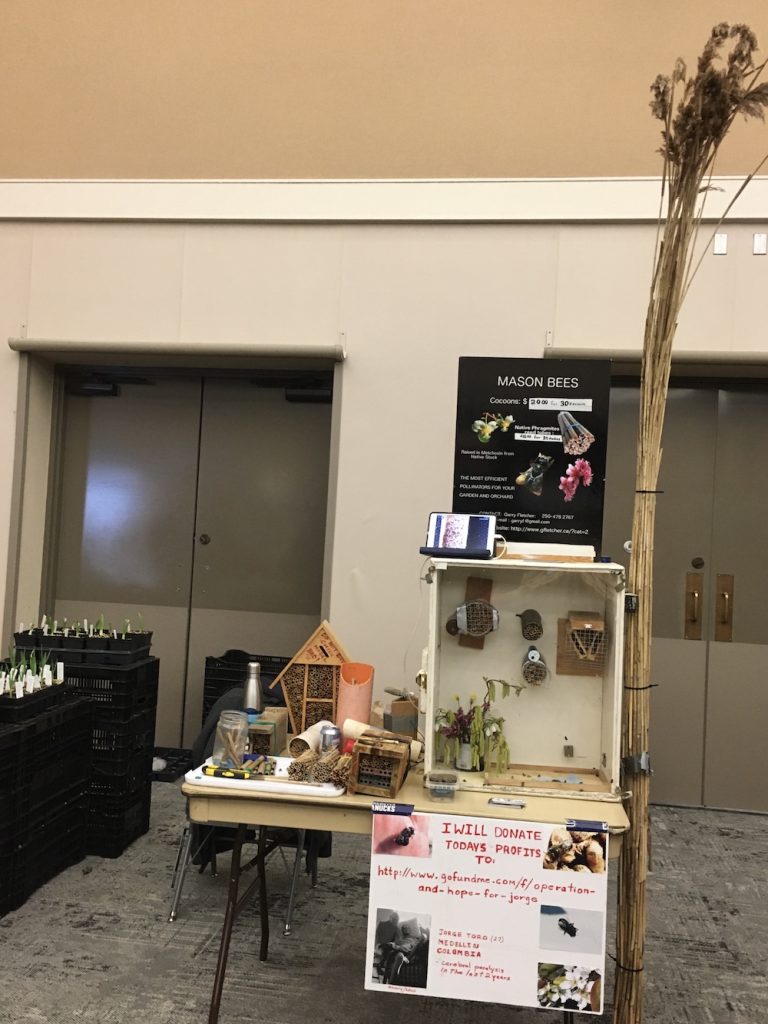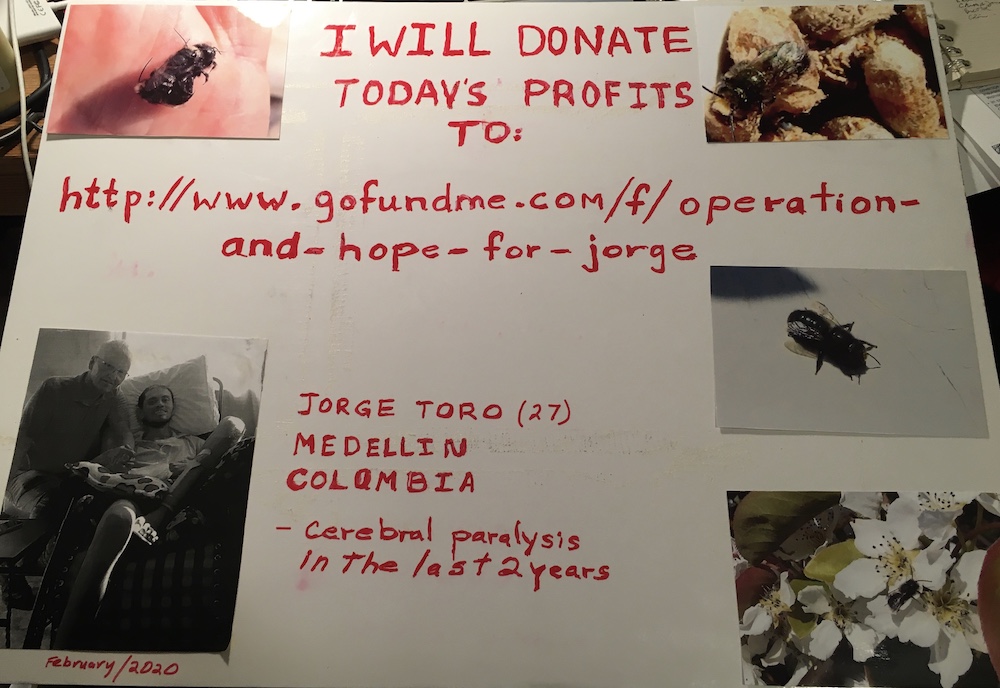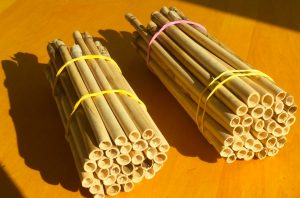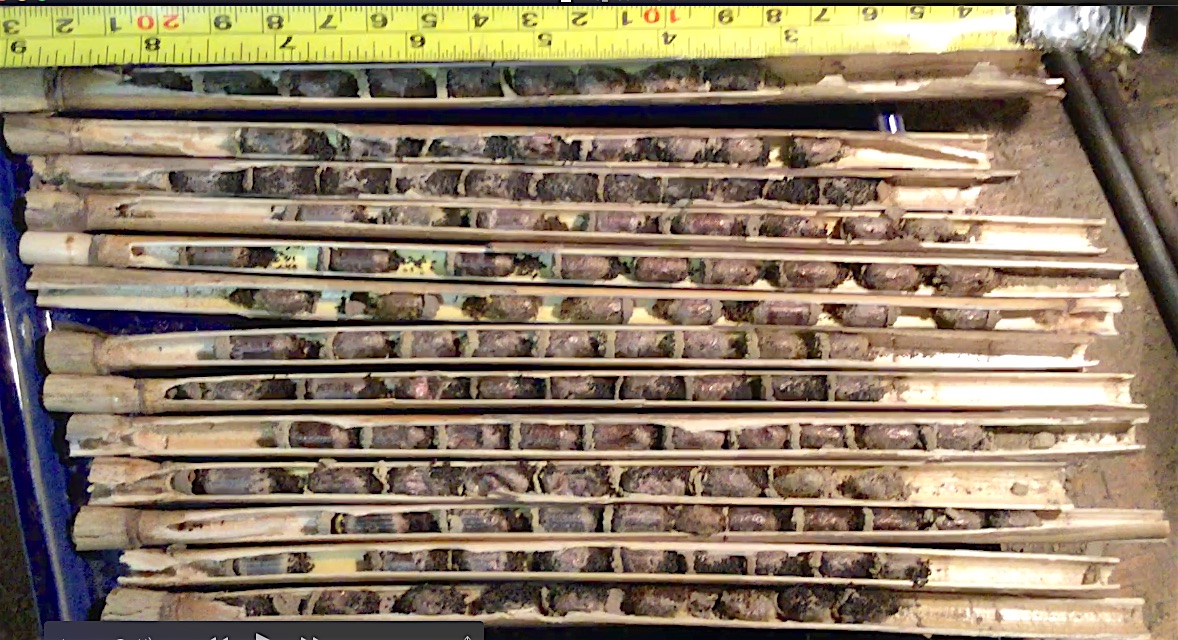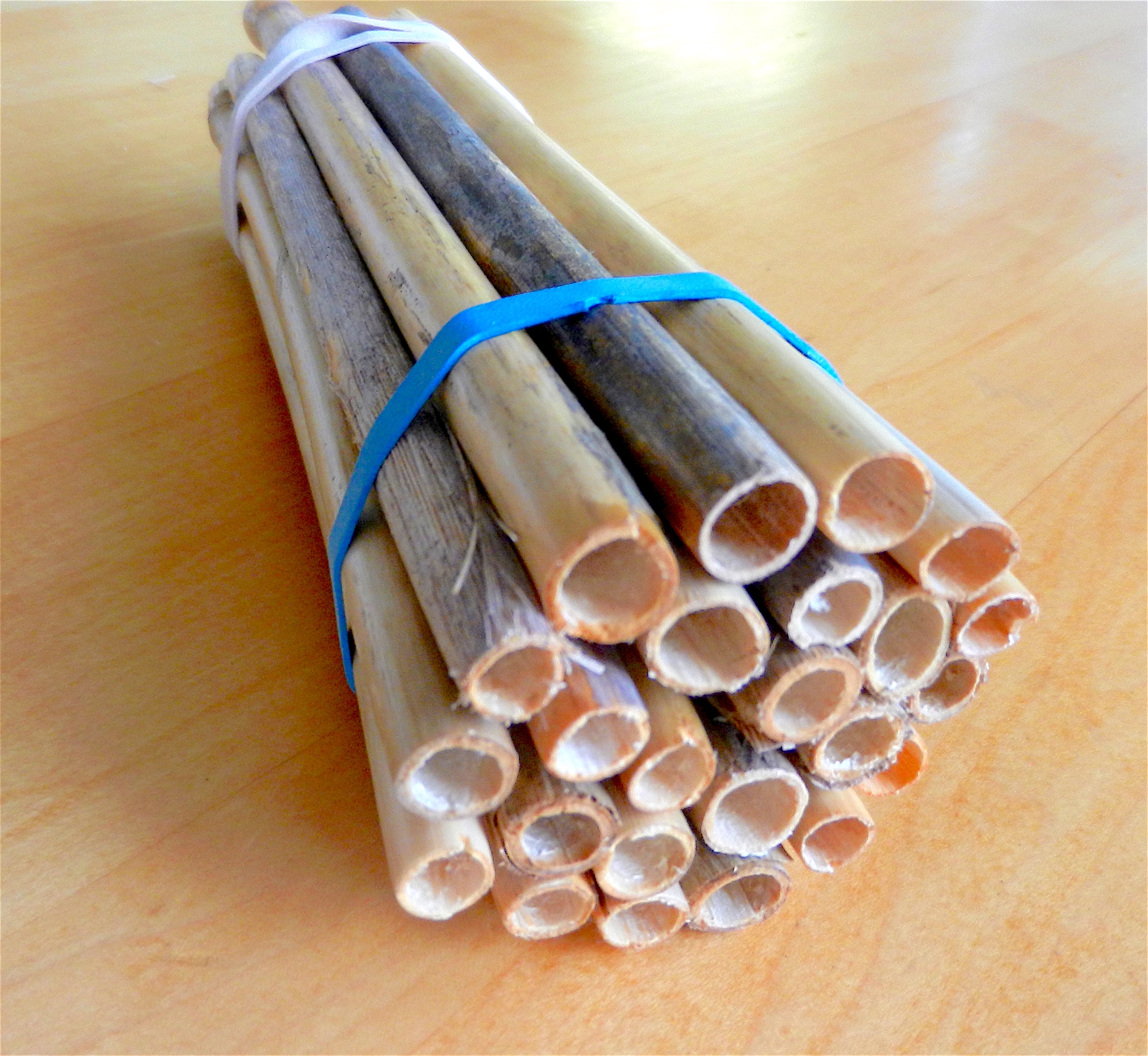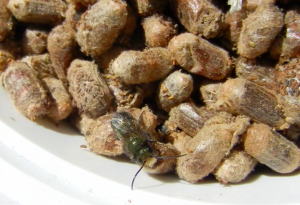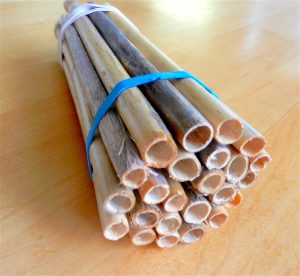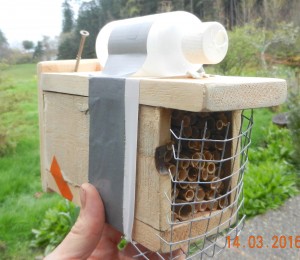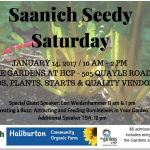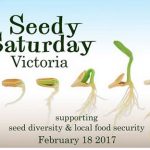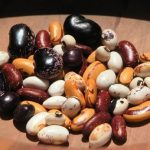NOTE: I have updated this 2015 post in order to make it appear closer to the other mason bee information
In the past two weeks I have been cutting more Phragmites (reed grass) tubes for the mason bee homes. Its important to get them before the new shoots emerge as they are easily trampled or cut off while you are cutting the stems. About one in 50 stems are of suitable diameter, so it does take some time to get them. This population is one of the few left in BC. One theory is that cattle grazing in the early years destroyed most of the native populations along the coastal estuaries.This population may have been spared because of the poisonous “arrow grass”– Triglochin sp. that is common in this marsh, so it was fenced from the earliest times on.
This phragmites is the native variety. In Eastern Canada however, there are populations of the introduced variety that are a serious invasive species.
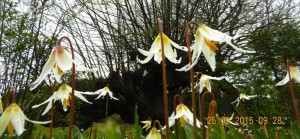
I have a few of these tubes available for pickup in Metchosin. See this page re purchase:https://www.gfletcher.ca/?p=1
